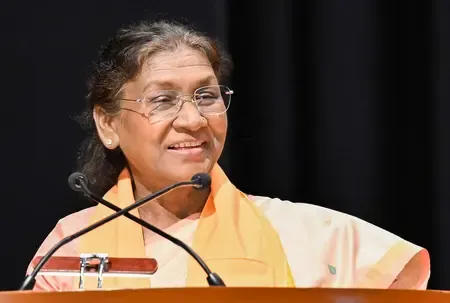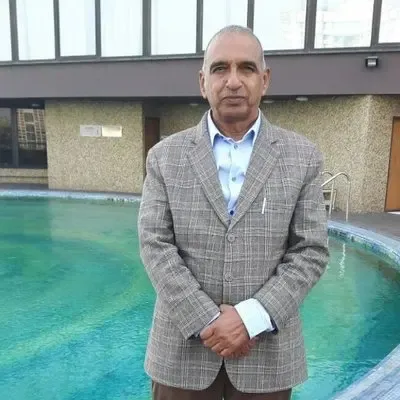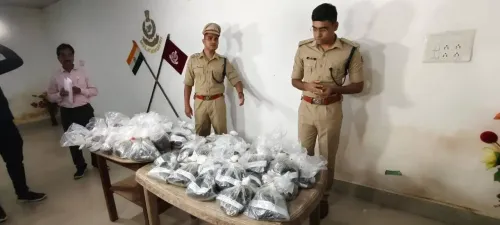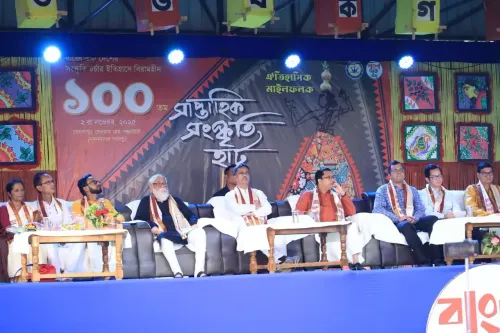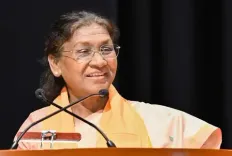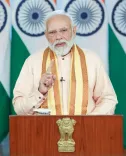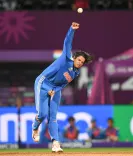Karnataka Ministers Don Black Bands to Oppose Waqf Bill
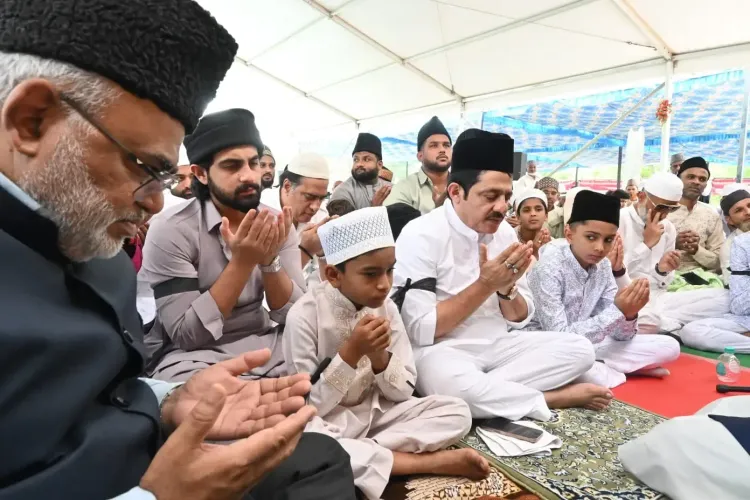
Synopsis
Key Takeaways
- Karnataka Ministers protested against the Waqf Amendment Bill 2024.
- Black bands were worn during Ramzan prayers as a symbol of dissent.
- Calls for unity among communities were emphasized by Minister Zameer.
- Religious leaders across the nation supported the black band protest.
- Significance of communal harmony was highlighted during the observance of Ramzan and Ugadi.
Bengaluru, March 31 (NationPress) Ministers from Karnataka, along with their followers, adorned black bands on Monday while participating in Ramzan prayers to voice their dissent against the Waqf Amendment Bill 2024.
Minister for Waqf and Tourism, B.Z. Zameer Ahmad Khan, and Minister for Municipal Administration and Hajj, K. Rahman Khan, were seen with hundreds of supporters in Bengaluru and Bidar, respectively, during the morning prayers.
Zameer Ahmad Khan performed Namaz at Chamarajpet Grounds in Bengaluru, showcasing a black band around his arm, with numerous supporters mirroring his gesture.
When addressing the media, Minister Zameer stated, “People celebrated Ugadi on Sunday, and today marks the observance of Ramzan. I wish everyone well on this occasion. We fast for 30 days during Ramzan, which is a significant festival for Muslims, alongside Bakrid.”
He further mentioned, “For Hindus, Ugadi, celebrated on Sunday, is also an essential festival symbolizing the start of a new year. After our religious preacher conducted prayers, we engaged in duwa. During duwa, I prayed for unity among all communities—Muslims, Hindus, and Christians—to coexist as brothers and sisters. Our religious leader also prayed for this unity.”
“Our Chief Minister, Siddaramaiah, has been attending morning prayers annually. Unfortunately, he was unable to attend this time due to illness. He called me at 9:30 a.m. to convey his well-wishes to all community members. Our religious leader offered special prayers for his health and longevity,” he added.
The minister clarified that religious leaders nationwide had advised people to wear black bands as a peaceful protest against the proposed Waqf Bill.
Zameer reiterated, “The Waqf Act has roots dating back to British rule. Our demand is for the Central government to refrain from introducing this new bill. Our state government has already taken a stance, and in the last Assembly session, we resolved not to support it.”
Prominent Islamic scholar Maulana Mohamed Maqsood Imran Rashadi also commented, stating, “In the upcoming two to three days, the Waqf Amendment Bill will be presented in Parliament. We are not merely making verbal statements; by wearing black bands, we are sending a clear message that this development is unacceptable. The Constitution grants us the right to protest, and we are exercising it to express our disapproval of the Waqf Amendment Bill.”
He highlighted the significance of unity and respect among different communities. “Ramzan unites both the affluent and the underprivileged, ensuring that those with means assist those in need. Just yesterday, Ugadi was celebrated, and today, we observe Ramzan. India exemplifies communal harmony, and this message should resonate globally. Muslims extend their wishes to Hindus, just as Hindus do for Muslims during special occasions.”
“I have encouraged my Muslim brothers to present gifts to police personnel, neighbors, and hospital staff as a symbol of goodwill and togetherness,” he concluded.
Meanwhile, Karnataka Legislative Assembly Speaker U.T. Khader participated in the morning prayers at Bavutagadde Idgah Masjid in Mangaluru, although he did not wear a black band.

